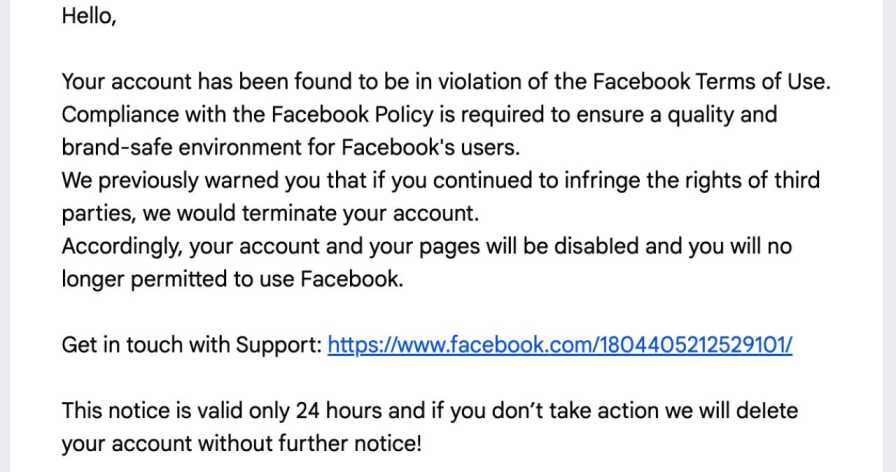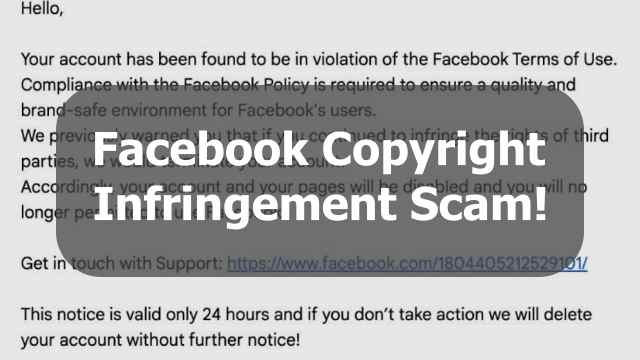Recently, Facebook users have been the target of a new fraud called the Copyright Infringement fraud, in which victims are threatened with having their accounts terminated.
As a result, we will examine this copyright infringement scam in this post and inform you of its dissemination as well as the steps you should take to avoid falling for it.
What is Facebook Copyright Infringement Scam?
Typically, a text message or a message on your Facebook Messenger account starts the hoax. The communication appears to be from Facebook or its parent company Meta’s official officials.
The message also claims that by violating someone else’s copyright, you have violated their terms of service or community standards. Your account will be closed, they say, if you don’t submit an Appeal Form within a day.

You must click on the link in the message to complete the appeal. When you click on that link, you are taken to a page that looks exactly like Facebook’s official website, but it isn’t.
You need to fill out the appeal form on the fake Facebook website with your details to keep your account from being terminated. You are providing vital information to con artists by completing that form.
Scammers’ primary goal is to obtain your personal information to commit identity theft to obtain your funds.
Read: Nexus Rewards Review
What Should I Do?
Even with rudimentary reasoning, you will be able to figure out that this is a fraud, as how can filling out a form resolve the situation if you have broken such major rules that your account is about to be terminated?
Furthermore, by giving con artists your personal information, you run a very high danger of falling victim to identity theft, in which criminals may even use your identity to steal money from your family members by posing as you.
Additionally, they can steal money from your Facebook account by using the payment methods that you have saved. Additionally, exploit your credentials for other illicit purposes.
There are certain indications that you should watch out for to spot Facebook copyright infringement scam posts. First of all, since the messages are coming from con artists rather than Facebook, they are always riddled with grammar mistakes and have an informal tone.
Additionally, those messages constantly feel urgent and harassing, which is a major warning flag.
To prevent falling for an identity theft scam, you should immediately delete and disregard any emails that raise these warning flags.
Read: Knowledge Era Review
